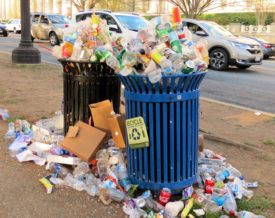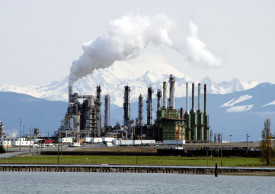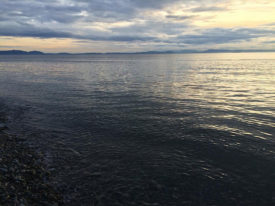Is this now an annual event? In Western Washington, recent rains brought tremendous flooding, which killed at least one hunter, washed-out numerous roads, destroyed at least one campground, and entirely closed Mount Rainier National Park.
Like the approach of the holidays at years’ end, it’s become almost predictable that autumn floods of surprising intensity will wipe out access to our surprisingly underfunded national parks and forests. Surprise!
Only it shouldn’t be a surprise. For many years now, climate scientists have warned that a warming atmosphere will bring increased floods to the Pacific Northwest. They may or may not look exactly like this past week’s, but we can be fairly sure that we will see more of them and that they will have very similar effects. That’s not good news for trails and outdoor recreation.
Because we’ve been chronically starving our parks and forests of budgets, forest roads and popular trails sometimes don’t get rebuilt after they’re destroyed. That diminishes our ability to enjoy our natural heritage, which (one could argue) further reduces our interest in funding them.
After the nasty flood season of 2003, I wrote an article detailing some of the finger prints of climate change on the Northwest’s trails. The damage from that year, by the way, has not yet been fixed; and a number of first-rate trails are still out of commission. The floods of 2006 will surely lengthen the list of vanished trails and further strain the already overloaded budgets of national parks and forests.
There’s a plausible argument to be made, I suppose, that climate change’s effects—principally the floods—will actually return some our natural places to deeper wilderness as it expands roadless and trail-less areas. (Never mind that washed-out roads continue to dump huge loads of sediment into streams.)
But I think the more likely scenario is that climate change is worsening a sickness. If visiting wild places is more difficult or less rewarding, it may reduce the power of those places have. It’s no accident that the beliefs of many ardent conservationists were forged in the backcountry. Even a weekend picnic at a nearby national park, such as Mount Rainier, can have a profoundly transformative effect on people. I worry that if we lose those experiences, we’ll lose our zeal for conservation, and in doing so we’ll lose something important about ourselves too.
Cheery thought, I know. Anyway, more info on closures over at Signpost, the blog at Washington Trails Association.
UPDATE 11/10/06: The damage reports are starting to roll in. In addition to the colossal damage at Rainier, the recent floods closed a highway near Mount Hood, did extensive damage to roads and trails in the Gifford Pinchot National Forest (southern Washington Cascades), closed the Quinault and Hoh River Roads in Olympic National Park, closed the North Cascades Highway, and washed out parts of the Cascade and Stehekin River Roads in North Cascades National Park. More info here and here.
Did I mention the forecast for this weekend? Heavy rains and probably more flooding. Surprise.







